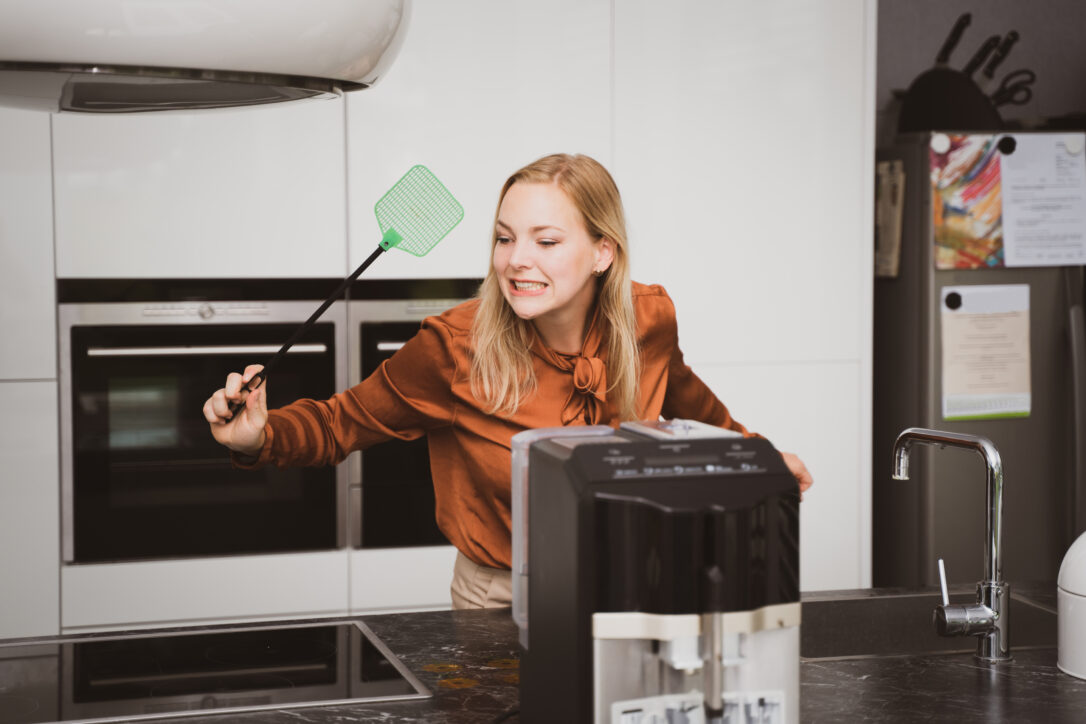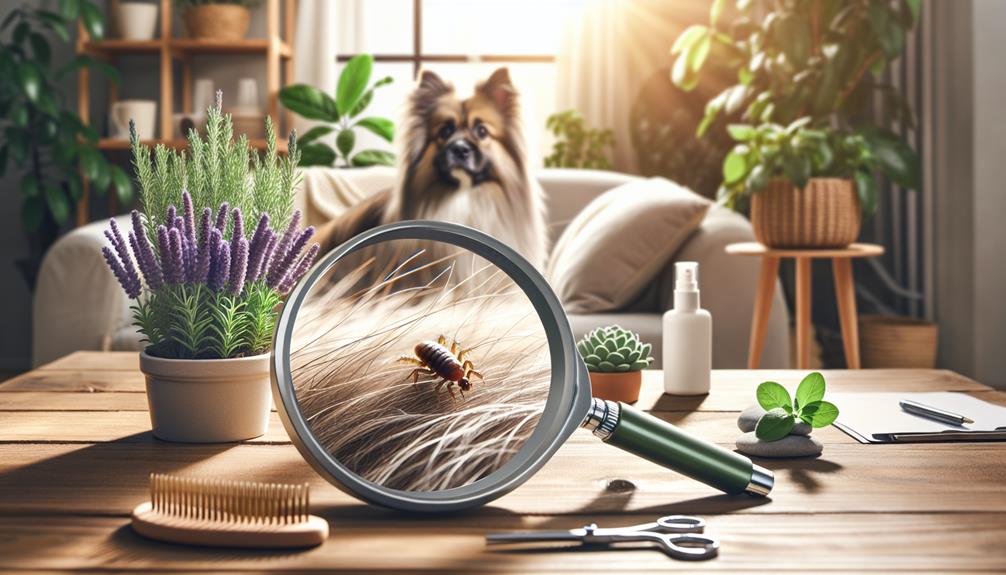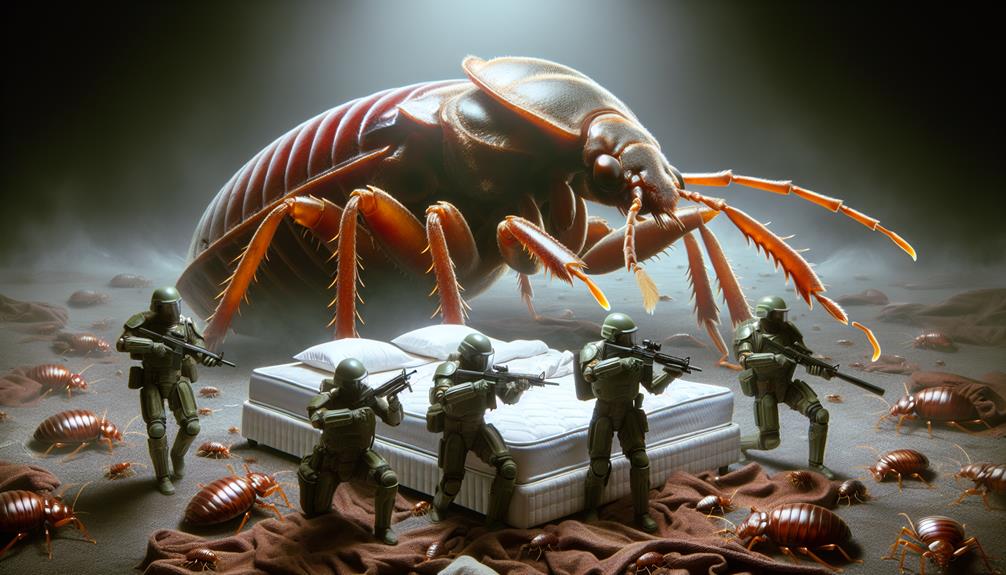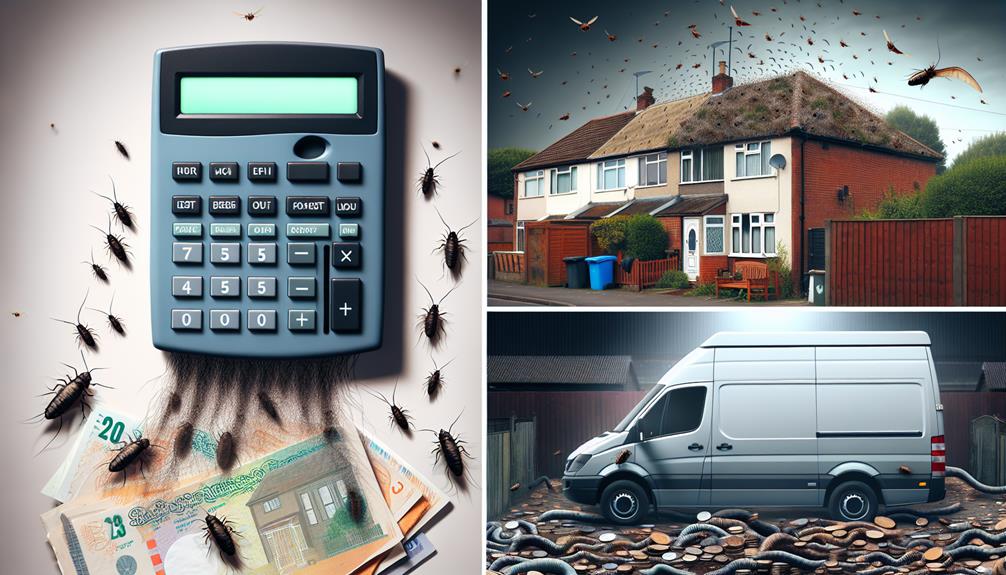As a pest control specialist, I am well aware of the discomfort and inconvenience that common household pests can cause. From ants to rodents, these pesky intruders can disrupt our daily routines and even pose health hazards if left unchecked.
While professional pest control services are effective in eliminating infestations, some homeowners prefer to take matters into their own hands with DIY techniques.
In this article, we will explore the top DIY pest control techniques for common household pests. By using natural remedies and simple strategies, you can save money while keeping your home free from unwanted guests.
Join me on this journey as we discover how to prevent and eliminate pests in a safe and effective manner.
Detailed Guide On How To Handle Common Pests
As a pest control specialist, it is important to know how to handle common household pests. There are several ways to deal with these pesky critters including natural repellents, prevention measures, traps and baits, home remedies and proper sanitation.
One of the best ways to keep pests at bay is by using natural repellents such as peppermint oil or vinegar. These substances not only repel insects but also act as disinfectants in your home.
Prevention measures such as sealing cracks and crevices can help prevent insect infestations from occurring in the first place.
Traps and baits are another effective way of controlling pests like rodents and cockroaches.
Home remedies such as diatomaceous earth or baking soda can be used against ants and spiders.
Finally, maintaining proper sanitation practices will ensure that your home remains uninviting for pests looking for food sources.
Safe And Effective Diy Pest Control Methods
It can be frustrating and even scary to deal with pests in your home. Not only do they pose a threat to the health of you and your family, but they can also cause damage to your property. However, before calling in a professional exterminator, it's worth considering safe and effective DIY pest control methods that are both natural and non-toxic.
Here are some options for natural repellents, homemade traps, preventive measures, non-toxic solutions, and organic insecticides that you can use to keep common household pests at bay:
Natural Repellents:
- Peppermint oil
- Lavender essential oil
- Citronella candles
- Garlic spray
Homemade Traps:
- Sticky flypaper
- Jar traps for fruit flies
- Beer trap for slugs
- Vinegar trap for ants
Preventive Measures:
- Keep food stored properly
- Seal cracks and holes in walls or floors
- Remove standing water sources
- Clean regularly
Non-Toxic Solutions:
- Diatomaceous earth
- Boric acid powder
- White vinegar
Organic Insecticides:
- Neem oil
- Pyrethrin-based sprays
- Soap-based insecticide
By using these methods, you may be able to effectively control pests without resorting to toxic chemicals or harming beneficial insects. However, there may come a time when it is necessary to call a professional exterminator. Let's explore more about when this might be necessary in the next section.
When To Call A Professional Exterminator
Transitioning from the previous section on safe and effective DIY pest control methods, it is important to be aware of the limitations of such techniques. While DIY methods can provide temporary relief for common household pests like ants, cockroaches, and spiders, they are not always a long-term solution.
Additionally, there are certain situations where calling in a professional exterminator should be prioritized. Before making the decision to call in a professional pest control service, it is crucial to look out for signs that suggest an infestation has become too severe for DIY measures.
These signs include persistent sightings of pests despite multiple attempts at eliminating them, property damage caused by pests, or health issues arising due to allergies or bites. When these symptoms are observed, it is time to consider seeking expert assistance – especially if you have already exhausted several DIY approaches without success.
However, one must also take into account factors such as cost implications when deciding whether to opt for professional help or continue with DIY efforts alone.
Frequently Asked Questions
What Are Some Alternative, Eco-Friendly Methods For Pest Control?
Eco-friendly solutions have become increasingly popular in the field of pest control. Non-toxic options are now available to homeowners that can effectively get rid of pests without posing a threat to humans and pets.
Homemade repellents made from natural ingredients such as vinegar, peppermint oil, and garlic are also effective in keeping pests away. Natural deterrents like predator urine, diatomaceous earth, and nematodes are chemical-free methods that work well against common household pests.
Pest control specialists recommend these alternatives because they not only protect your family but also help preserve the environment by reducing exposure to harmful chemicals commonly found in traditional pesticides. By incorporating eco-friendly pest control techniques into your home maintenance routine, you'll be contributing towards creating a safer living space for yourself and others while enjoying a healthier planet.
Can Certain Household Plants Help Repel Pests?
Using plants as a means of pest control is not a new concept.
Insect-repelling herbs such as basil, lavender, and mint have been used for centuries to ward off unwanted bugs from gardens and homes alike.
Essential oils extracted from these plants can be mixed with water or vinegar to create homemade sprays that are effective in keeping pests at bay.
These non-toxic options provide an eco-friendly alternative to harsh chemicals found in traditional pesticides.
While it's important to note that using plants alone may not completely eliminate all pest problems, incorporating them into your pest management plan can help reduce the need for chemical treatments while providing a natural solution that aligns with many people's desire for more sustainable living practices.
How Do I Prevent Pests From Entering My Home In The First Place?
Preventing pests from entering your home is crucial in maintaining a pest-free environment. The first step is to seal cracks and gaps around doors, windows, pipes, and other potential entry points.
Regular cleaning of the house also eliminates crumbs and spills that attract pests. Installing screens on doors and windows further prevents flying insects from getting inside.
Removing food sources such as pet food or unsecured garbage cans outside the house helps deter rodents, ants, and cockroaches. Trimming vegetation near the house reduces hiding places for pests like spiders and termites.
By implementing these preventive measures, homeowners can significantly reduce their chance of experiencing a pest infestation in their homes while ensuring a safe living space for themselves and their families.
Are There Any Natural Remedies Or Homemade Solutions For Pest Control?
Natural remedies and homemade solutions have become increasingly popular in DIY pest control, as more people seek eco-friendly methods of dealing with household pests. These methods typically involve using natural ingredients such as essential oils, vinegar, or baking soda to repel or eliminate pests.
For example, peppermint oil can be used to deter ants, while a mixture of water and dish soap can effectively kill fruit flies. While these solutions may not always work for severe infestations, they offer a safe and affordable alternative to traditional chemical treatments.
However, it is important to note that not all homemade solutions are effective, and some may even attract more pests. As a pest control specialist, it is crucial to educate homeowners on the best practices for using natural remedies and ensuring their safety when dealing with household pests.
What Are Some Common Mistakes To Avoid When Attempting Diy Pest Control?
When attempting DIY pest control, it is important to avoid common mistakes in order to effectively manage household pests.
One mistake people often make is relying solely on homemade solutions that may not be effective or safe for use around the home.
It is important to understand pest behaviour and identify their entry points in order to properly pest-proof your home.
Additionally, investing in safe chemical-free alternatives can provide long-term relief from infestations without harming the environment or risking human health.
As a specialist in the field, I recommend seeking professional advice if unsure about how to tackle an infestation.
Share this Post




